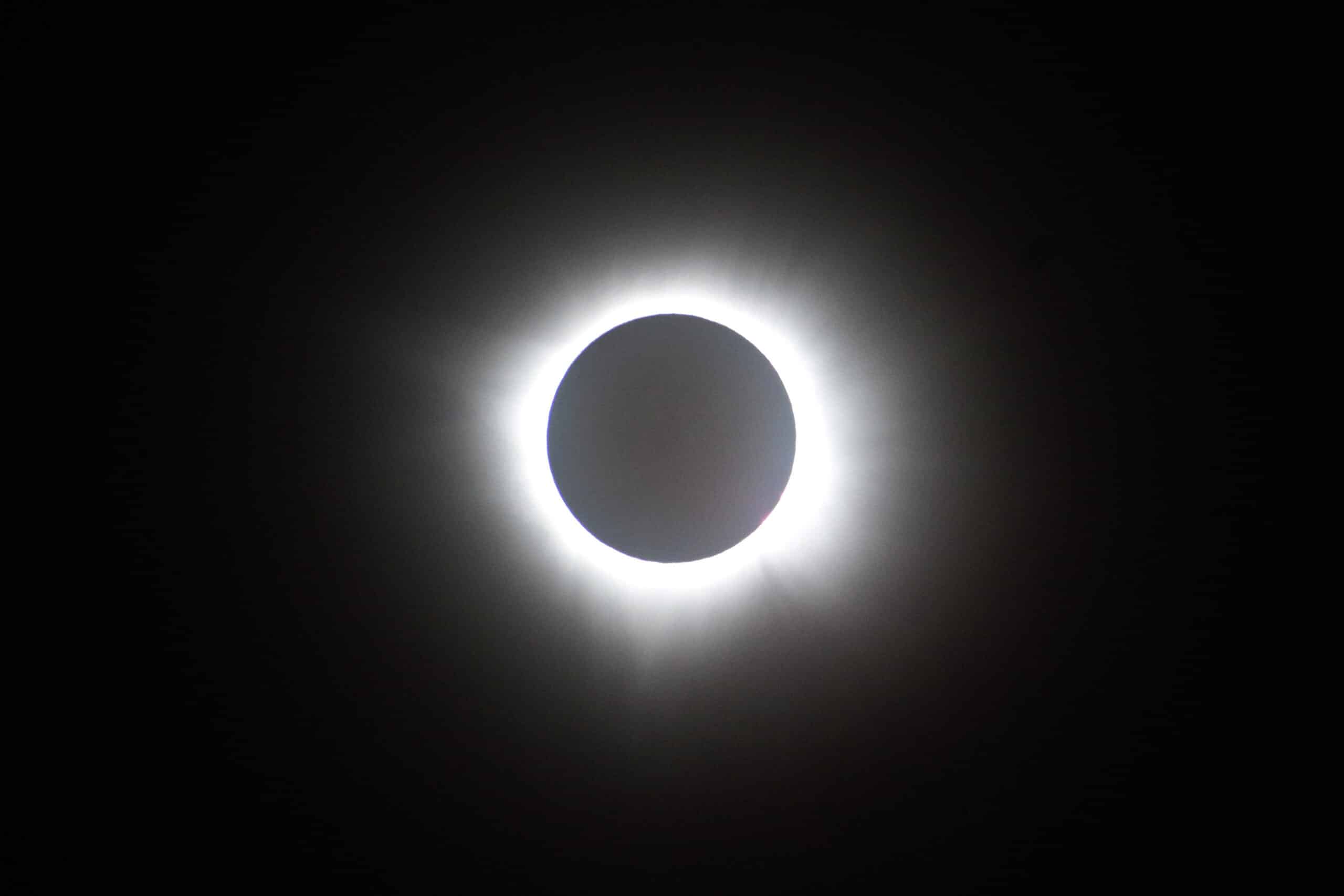Solar eclipse to create rare ‘ring of fire’ over South America

View of a total solar eclipse seen from Nazas, Durango state, Mexico on April 8, 2024. FILE PHOTO/Agence France-Presse
PUERTO SAN JULIAN, Argentina — An annual solar eclipse will create a rare “ring of fire” phenomenon visible in parts of South America on Wednesday.
A “ring of fire” occurs when the Moon lines up between the Sun and the Earth to create a solar eclipse but does not block out the Sun’s light entirely.
This year, the Moon will be further from the Earth than usual, so those in parts of Chile and Argentina will be able to witness “a kind of ring of light coming from the Sun”, Diego Hernandez, head of scientific dissemination at the Buenos Aires Planetarium, told AFP.
READ: ‘Ring of fire’ eclipse transfixes crowds across the Americas
A “crescent sun” will be visible before and after the ring, as the Moon passes in front of the Sun, he added.
Article continues after this advertisementThe solar eclipse’s path will begin in the North Pacific, pass over the Andes and Patagonia regions of Latin America, and finish in the Atlantic.
Article continues after this advertisementThe eclipse will last more than three hours, from 1700 to around 2030 GMT, according to NASA.
READ: ‘Ring of fire’ eclipse brings cheers, shouts of joy as it moves across the Americas
But the “ring of fire” phenomenon is expected to last just a few minutes, occurring around 1845 GMT, according to the IMCCE institute of France’s Paris Observatory.
A partial eclipse will be visible from Bolivia, Peru, Paraguay, Uruguay, parts of Brazil, Mexico, New Zealand and several islands in the Pacific and Atlantic oceans, NASA said.
Space agencies and institutes have warned against observing an eclipse with the naked eye, saying it can cause irreversible damage to the retina. Ordinary sunglasses offer insufficient protection.
The only safe methods, according to NASA and the IMCEE, are using certified special eclipse glasses, or watching indirectly through a pinhole in a cardboard sheet projecting the image of the eclipsed Sun onto a second cardboard sheet.
The next partial solar eclipse will take place on March 29, 2025, visible mainly from western North America, Europe and northwest Africa.